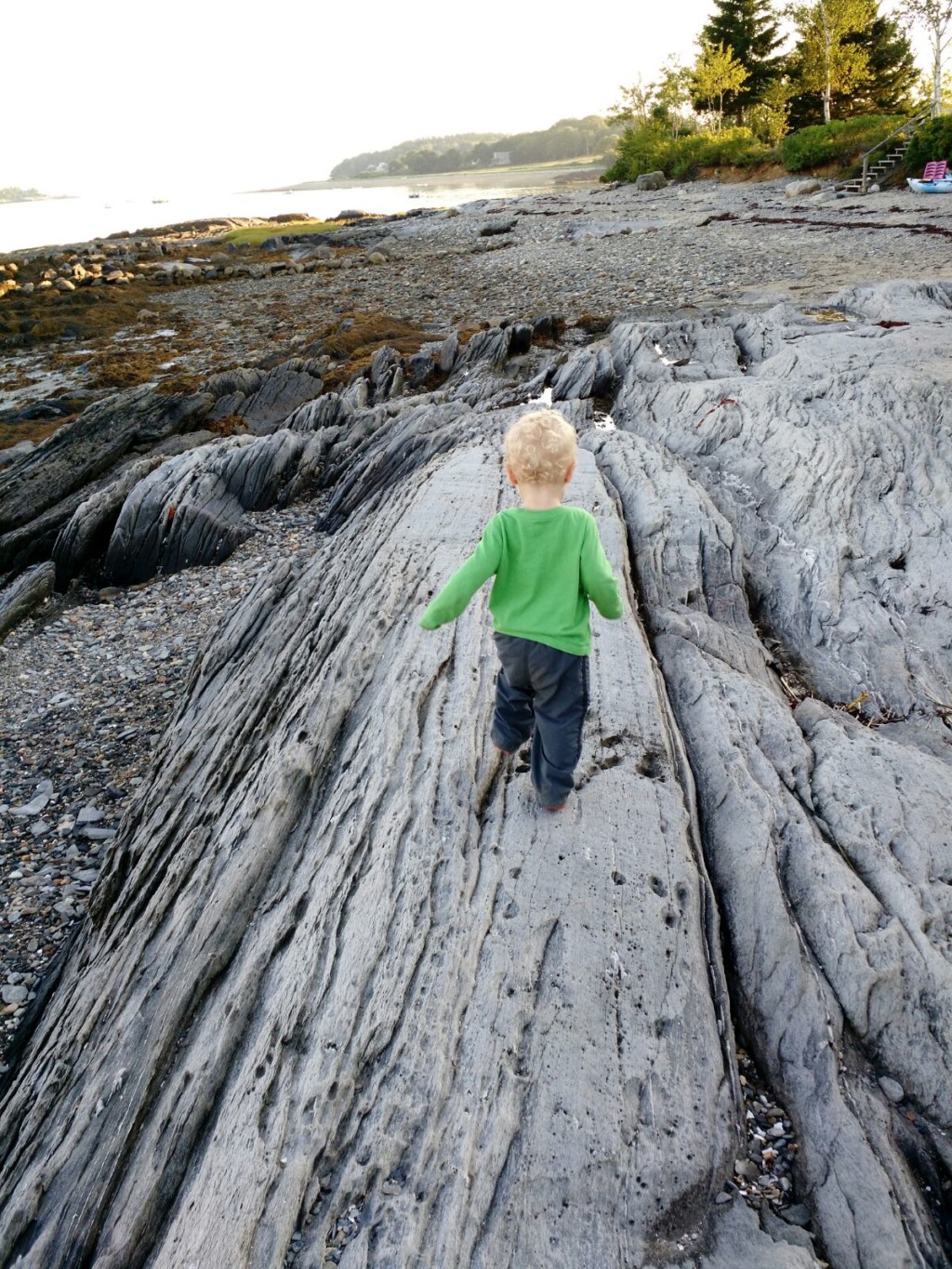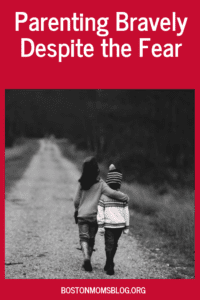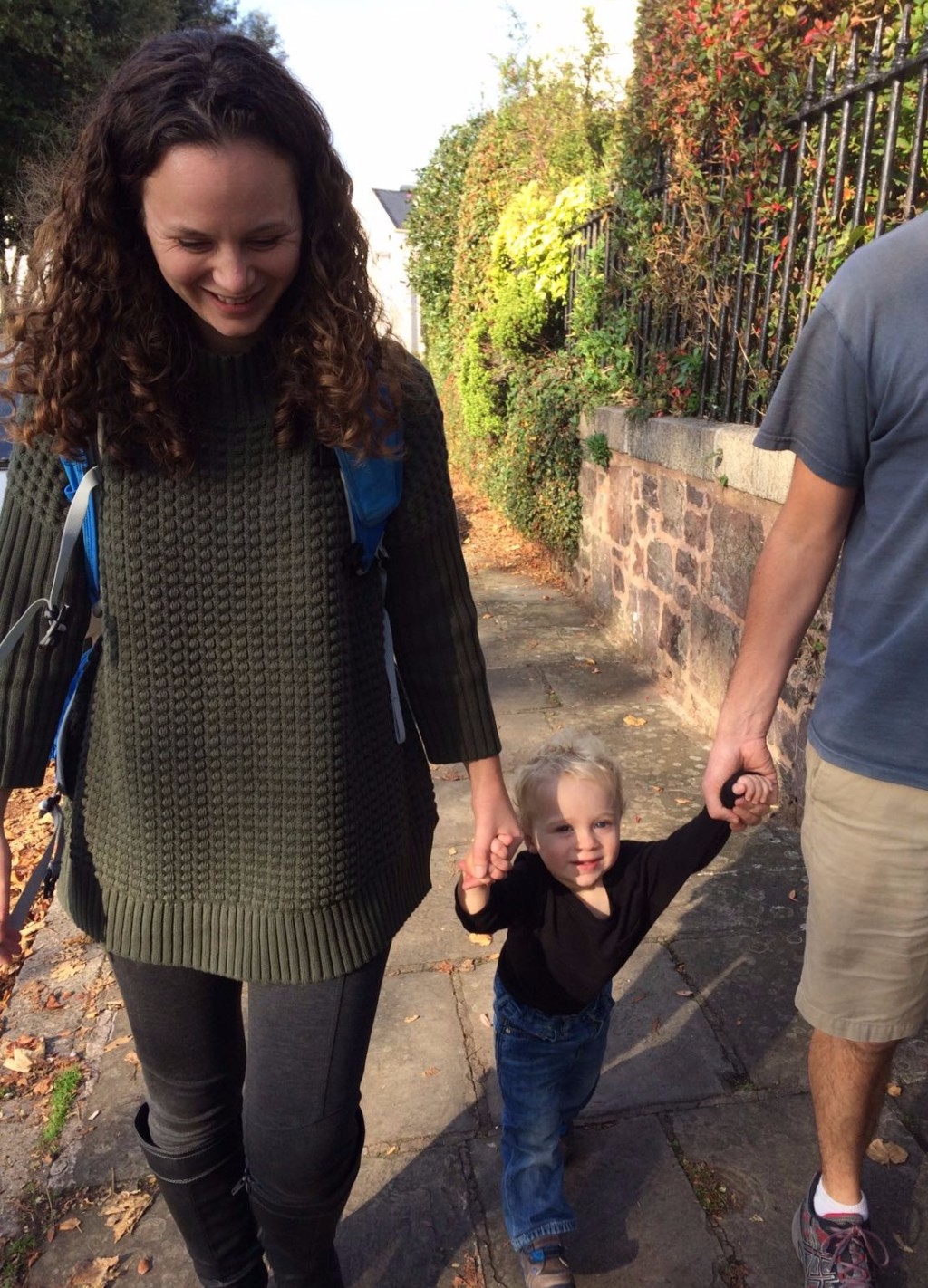
In the weeks and months following my son’s birth, I spent a lot of time just staring at him. He would nap, and I would stare, marveling at the length of his eyelashes and the way his pudgy hand rested possessively on my chest. I also spent a significant amount of time imagining in alarming detail all the things that could happen to him and how my world would then darken and my heart seize. Fully scripted scenarios would take over my mind, leaving my heart racing and palms sweaty, needing to breathe myself back into the moment.
Gradually, as sleep deprivation and the risk of SIDS receded, I’ve been able to push back against these fears, and I now rarely find myself paralyzed by a daydream gone bad. Yet still, there are days when the world seems too viscous, too dangerous for me to send my son into.
The sun seems too strong for his pale skin, the ground too hard, and gravity too relentless. Sometimes I watch him sleeping, and my mind flicks through a catalogue of fears. I turn to my husband and make him promise me that climate change will not render our son’s world uninhabitable; that the frozen spinach we had for dinner was not laced with listeria. And then I turn on my phone and see news of another shooting, another attack, our honeymoon destination turned into a hashtag. I switch on the radio and there’s a man shouting incomplete sentences and the gist seems to be that we need to hate in order to protect ourselves. That hate can only be met with hate, fear with fear, or the world will burn.
It hasn’t gone unmentioned that the connected world we live in means our perception of danger is distorted. No one reports on the millions of people whose days were dull, whose days did not end in tragedy. The planes that do not crash-land are unremarked on. Instead, everywhere, from the news to the weather channel to our Facebook newsfeeds, we are told that we are unsafe and the apocalypse is coming. The ubiquity of media means it can feel like a near constant assault, and our perceived reality becomes disfigured and grotesque.
Always aware of the fragility of our existence, motherhood has elevated that anxiety in me to new and lofty heights. Barely a day passes without a new tragedy being reported, and as my brain processes each new threat, I find myself dreaming of a remote cabin in Vermont and considering the pros and cons of bulletproof backpacks. Sometimes the world, with all its agony and terror, spins around me, making me dizzy with fear and the seeming impossibility of protecting my son.
Mostly, I am afraid that my fears will limit his joy. I want to celebrate his curiosity and sense of adventure, not stifle it. And while I have every intention of teaching him a healthy wariness of strangers, to cross the street with caution, and to just say no, I desperately do not want him to view the world through a lens of fear. To some degree, my fear is inevitable — the day he was born and I opened my heart to All The Love, I also welcomed in fear. So I am not looking to banish it entirely but instead to find a balance — to quiet the noise of the ever-present media and to pick through each grain of worry, accepting the weight of some and refuting others.
My midnight Googling tells me that in actuality we are safer now than we’ve ever been — violent crime is down, and I’m more likely to drown in my bathtub than be killed by a terrorist. I try to feel the truth of these facts, try to quell my anxiety by reading up on how I’m more likely to get struck by lightning than eaten by a shark. I work to convince myself that the car sitting innocuously in my driveway is more of a threat than the plane I’ll board next month. Or, when I’m being ridiculously sane, I try to convince myself that I will die of old age like most people.
I refuse to let fear rule my parenting, but I know it’s going to take all of my strength to counter it. I am a worrier, and I know I won’t be able to con my son into thinking otherwise — I do not believe we can hide our true selves from our children. Yes, I can smile and even laugh during plane turbulence, but he has made a study of my eyes and smile his whole life; surely he will not be fooled. Instead, I hope he will understand that while I was afraid, I still boarded the plane; while I gripped the armrest (as if it held any rescue ability), I also smiled and thanked the cabin crew for their offer of pretzels.
He can look to his father for swagger and blithe confidence in the safety of the world. In me, I hope he will see that I stand up to the bully that is fear and put it in its place. I do not stay home all day with the shades drawn, and while Dr. Google and I are certainly on friendly terms, I do not rush to the hospital with each new self-diagnosis.
If he does inherit my worry, I hope I can model how it doesn’t have to rule him — that he will learn from me how to counter scaremongering with truth, hyperbole with reason. I hope he will recognize the hawkers of fear for what they are and that when he encounters irrational fear, he won’t bow down to it. That instead he will take a deep breath, focus on the good, and always wear his flipping seat belt.
















